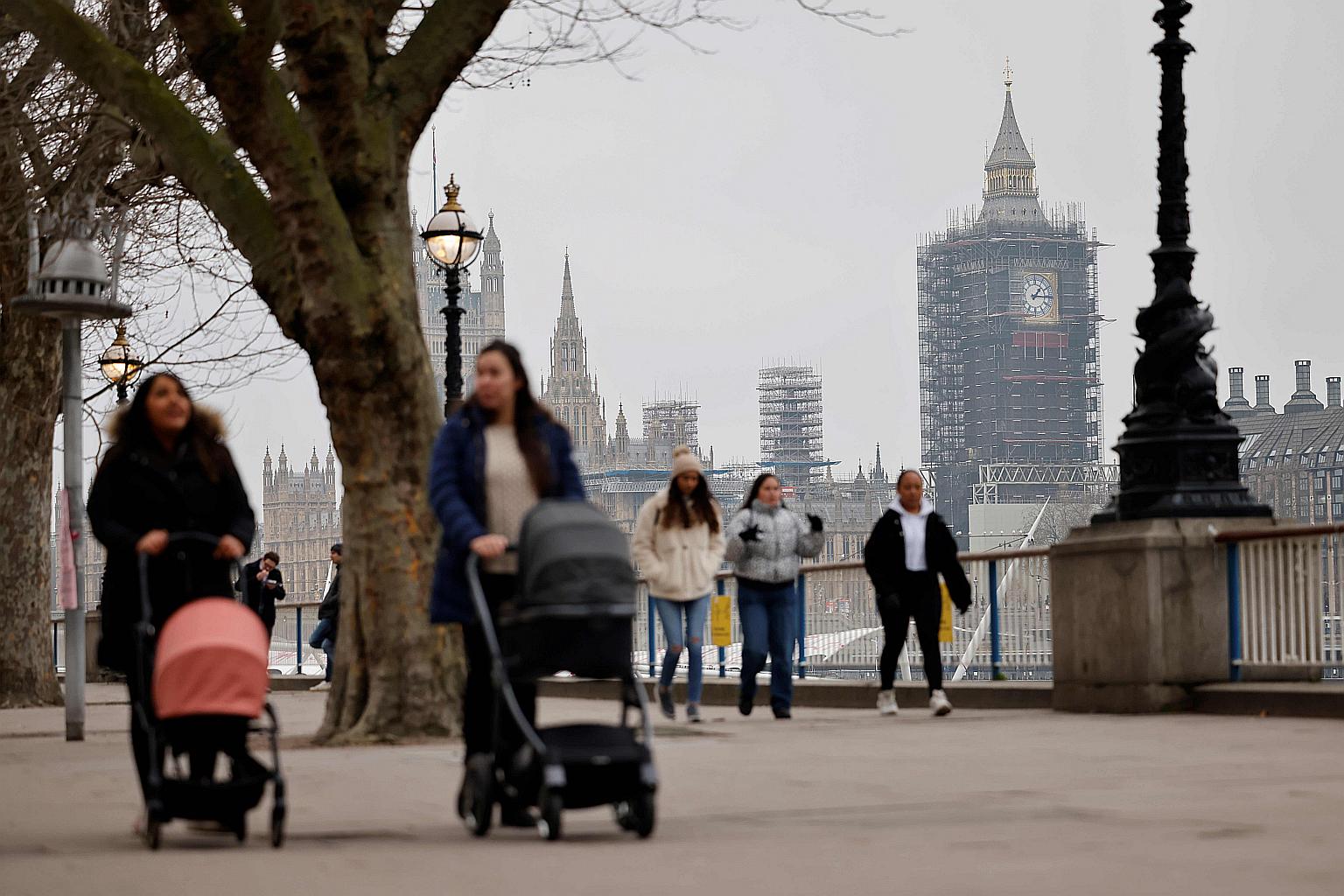London mayor Sadiq Khan triggers crisis plan as coronavirus sweeps city
Sign up now: Get ST's newsletters delivered to your inbox

Government scientific advisers believe new infections in the UK are now above 100,000 a day.
PHOTO: AFP
LONDON (BLOOMBERG) - London Mayor Sadiq Khan declared a "major incident" in the UK capital on Friday (Jan 8) and warned the state-run National Health Service is at risk of being overwhelmed by a surge in coronavirus cases.
The announcement represents a stark verdict on the threat of the virus to London's 9 million residents as pressure mounts on hospitals and ambulance services. It will spark a more coordinated response from emergency services to tackle the crisis, his office said.
"The situation in London is now critical, with the spread of the virus out of control," Mr Khan said. "The number of cases in London has increased rapidly with more than a third more patients being treated in our hospitals now compared to the peak of the pandemic last April."
The mayor's declaration of a major incident in the capital means special arrangements must now be made by emergency services to deal with the Covid-19 crisis across the city. It also gives more weight to London authorities' requests to seek additional help from the government.
Major incidents have been declared previously for the Grenfell Tower fire in June 2017, in which 72 people died, and terrorist attacks.
With a more contagious strain of the disease taking hold, coronavirus is continuing to spread rapidly across the whole of England, according to new official estimates. Government estimates on Friday put the so-called R rate, which shows how fast the virus multiplies, between 1.0 and 1.4. The virus spreads exponentially when R is above 1.
Prime Minister Boris Johnson's government is relying on an accelerated vaccine roll-out to ease pressure on the health service and return the UK back to normal. England was placed into its third national lockdown this week, with people ordered to stay home and schools shut to most pupils.
A major incident is defined officially as being "likely to involve serious harm, damage, disruption or risk to human life or welfare, essential services, the environment or national security."
The mayor's decision is a recognition of how serious the situation is in London, as well as a public health message underlining that Londoners must stay home to prevent the health service from being overwhelmed.
On Wednesday the Health Service Journal reported London hospitals could run out of beds for intensive care patients within two weeks, citing a presentation by NHS England.
Government scientific advisers believe new infections in the UK are now above 100,000 a day, comparable or exceeding the first wave in the spring - though that comparison is an estimate due to the lack of sufficient testing in the early weeks of the outbreak.
They also think infection rates will drop more slowly during and after the current lockdown than the first wave, due to the new faster-spreading strain that is threatening to overwhelm hospitals. Lower adherence to social-distancing rules is also understood to be slowing efforts to get the R rate below 1.
Scientists say there's a danger people expect a quick end to the pandemic because of the vaccine programme, but restrictions can only be lifted slowly due to the prevalence of the disease.


